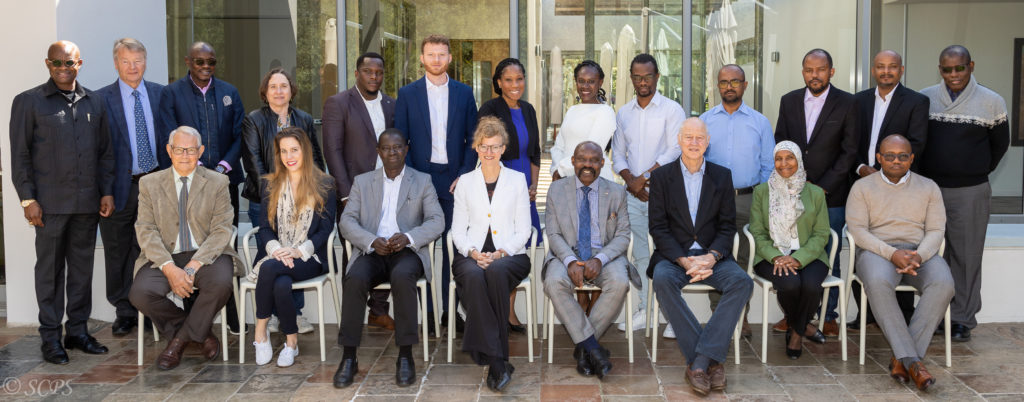Moves to craft a new generation of African constitutions that began in the 1990s promised a new dawn of radical transformation of the continent’s governance landscape and a concerted attempt to eliminate the risks of coups, political instability and other social and economic problems that had plagued the continent since independence in the 1960s. The reality however is that the post-1990 wave of constitutional reforms appears to have provoked a contagious fever of making, unmaking and remaking of African constitutions. The nature of these changes, their frequency and the fact that it has affected most countries in the region raises many practical and theoretical questions. It is, however, the resultant instability that threatens to undermine the few strides made to entrench a culture of constitutionalism, good governance and respect for the rule of law that is increasingly becoming a matter of great concern. It is therefore no surprise that there is now almost universal agreement that Africa is presently going through a severe and profound crisis of democracy and constitutionalism.

The 9th Stellenbosch Annual Seminar on Constitutionalism in Africa (SASCA 2022) took place at STIAS from 13 to 16 September with the theme of Constitutional Change and Constitutionalism in Africa. SASCA is jointly organised by the Institute for International and Comparative Law in Africa of the Faculty of Law, University of Pretoria; the South African Research Chair in Multilevel Government, Law and Development at the Dullah Omar Institute, University of the Western Cape and STIAS; In partnership with the Konrad Adenauer Stiftung Rule of Law Program for Anglophone Sub-Saharan Africa.
The main areas addressed included the nature of the constitution-making process, and the role of internal actors such as the legislature, the executive and the judiciary, and external actors including the African Union and Regional Economic Communities in the processes of constitutional change. The discussions unpacked how the processes of constitutional change, whether inevitable, unavoidable or even contrived, can be undertaken in a manner that does not undermine or threaten efforts made to entrench constitutionalism, good governance and respect for the rule of law on the continent.
Organised in sessions, the themes included: Constitution-making, constitutional change, constitutional change and constitutionalism; Eternity clauses, constitutional unamendability, constitutional change and constitutionalism; the Judiciary, constitutional change and constitutionalism; as well as detailed case studies from Ethiopia, Kenya, DR Congo, Libya, South Sudan, Malawi and Lesotho.
Power centred to people centred
In a passionate keynote address Dr Oby Ezekwesili, CEO of Human Capital Africa, former Nigerian Minister of Education and Vice President of the World Bank – Africa Region, emphasised the need to focus on developing people across Africa as the foundation for good constitution making and real democracy.
“Why does the process of constitutionalism matter – because it helps ensure government accountability to ordinary citizens,” she said. “The codification of laws is a way of cementing assurances that society will run with a degree of predictability.”
“Without the transformation of a country into a nation it’s hard for people to build together. It’s also harder to get people to a place of political negotiation without shared values, national vision, common identity and an inclusive, just society. It’s crucial that Africans bridge the gap from countries to nations.”
“We need to move people to the centre of the democratic space,” she continued. “Long-term political literacy is a major barrier to democratic processes. Citizens are at the heart of democracy and we must get them back to the centre. We have wasted 30 years in some countries.”
“We must also correct the pipeline of leaders into those who serve rather than those who only seek to serve. We need to describe the leaders we want and describe constitutions that place citizens at the centre. This starts with public mobilisation, the ending of siloes, collaboration and co-operation. Africa can claim the 21st century if we find real solutions.”
Also in a keynote Prof. Babacar Kante of the Gaston Berger University, Senegal emphasised the need to focus on the procedures of constitutional change or constitutions will not have legitimacy as well as the need for a multidisciplinary approach, “Constitutions drafted by the political elite are about remaining in power. There is no consultation and therefore no translation. We need to broaden the debates to include other disciplines.”
All the papers presented at SASCA 2022 will be peer-reviewed for publication in the 8th volume of the Stellenbosch Handbooks in African Constitutional Law series to be published by Oxford University Press.
Michelle Galloway: Part-time media officer at STIAS
Photographs: Anton Jordaan
